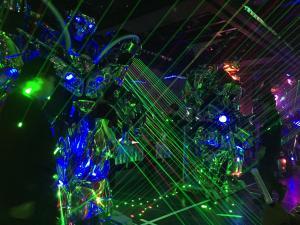I’ve been writing a lot about leadership, business and healthcare in Japan, but what about the elements of living here that might underlie some of dynamics I’ve been writing about?
I’ve been meaning to write more posts about life in Japan, but have found my blogging time spent writing longer posts about the interesting professional learning experiences I’ve been having the past months such as:
- A week of conferences and travel across Japan and being one of the few women in the room
- Attending the Japan-U.S. Medical Device Innovation Forum
- Attending the Conference for Healthcare about quality improvement and Lean in hospitals
Contrasts in cultures
But I don’t want to forgot to capture some of the interesting contrasts about living in Japan has with my experiences in the U.S., Australia and the U.K (the countries in which I have lived for most of my life, 4.5 years and 1.5 years).
Japan is a manual high-tech society

Many of the elements of what we know of as “Lean” thinking in the Western world are rooted in Japanese culture and thinking. I find these elements interesting, as well as the contrast to what we consider normal daily living in the U.S. and other Western countries.
For a country whose outward persona is one of high tech gadgetry and electronics, you might be surprised to learn how low-tech, manual and paper-based everyday life is here.
Contrasts and contradictions
Yes, the lights are everywhere and you can find robots and crazy gadgets galore, but in everyday life in Japan seems to be a contradiction between high tech and low tech.

It’s kind of like the small temples and shrines tucked away between gaping skyscrapers – a reminder that Japan has only been open to the rest of the world for a bit over 150 years.
Charm and frustration
These are the little elements of daily life in Tokyo that are so charming (and sometimes frustrating, though they have become the new norm).
I think they also perhaps give insight into the Japanese culture and business practices. Toyota drew on the strengths of the Japanese culture to create the Toyota Production System, and Chairman Aso just called on hospital leaders to use these strengths to improve healthcare.
I’m going to start writing more blog posts about these contrasts in life and their relationship to (or perhaps not) what we consider Lean thinking in the West.











